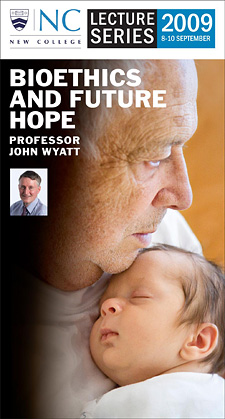In a significant legal judgment in the Supreme Court in Perth (Australia) a 49-year old man, Christian Rossiter, has been granted the right to starve himself to death. The Supreme Court has declared that his carers must comply with his request to let him die.
This tragic story had its beginning when a perfectly healthy 49 year old man, Christian Rossiter, was hit by a car and developed spastic quadriplegia. He is now fed through a tube in his stomach and wants to end his life. He has asked for the nursing home to stop feeding him. He says he is in a living hell with no control over his body. In making a testimony to the court he stated:
“I’m Christian Rossiter and I’d like to die. I am a prisoner in my own body. I can’t move. I can’t even wipe the tears from my eyes.”
Staff members were unable to agree to Mr Rossiter's request for them to stop force-feeding him. This was because in doing so the staff would in effect be not just allowing him to kill himself, but would according to the law, be "killing him'. This is because the Criminal Code in Australia makes it clear that if there is somebody in your care and they can’t remove themselves from this care, that you are obliged to provide them with what is necessary to sustain life.
 This is a very sad and tragic story. No doubt many people will want to say, let this man have his wishes granted, but there are tremendous legal and ethical consequences that will flow from such a decision. The judgment by the Supreme Court of Western Australia may well make it easier for others to end their lives. It may also change the rights and responsibilities of all carers in whatever capacity. There are significant ethical issues to be considered in relation to how we make judgements about people's ability to make such decisions when gravely ill or severely disabled.
This is a very sad and tragic story. No doubt many people will want to say, let this man have his wishes granted, but there are tremendous legal and ethical consequences that will flow from such a decision. The judgment by the Supreme Court of Western Australia may well make it easier for others to end their lives. It may also change the rights and responsibilities of all carers in whatever capacity. There are significant ethical issues to be considered in relation to how we make judgements about people's ability to make such decisions when gravely ill or severely disabled.
Dr John Wyatt who will deliver the 2009 New College Lectures next week under the title of Bioethics and Future Hope, has written a helpful book - Matters of Life and Death - that addresses the type of ethical issue that the Christian Rossiter judgment presents to us. Dr Wyatt is a Professor of Ethics and Perinatology at University College London who writes as a Christian seeking to apply his faith and the biblical understanding to the ethical dilemmas that he and other medical practitioners face every day. He challenges all of us (not just medical practitioners), to think about these issues. He addresses the very issues raised for Mr Rossiter’s carers in his chapter on euthanasia and assisted suicide and suggests that:
"Death like the sun, should not be stared at.' So said the French philosopher" Yet advances in medicine force us to do just that. Of course, all generations have discovered that they cannot evade the reality of death. But if we are going to develop an authentic Christian response to the issues of euthanasia and medically assisted suicide, we need to stare at death with renewed intensity. We need to stare at its mystery and awful finality, at the questions and fears that it raises, and at our own mortality" .death and dying are not just "out there' as abstract theoretical issues. Death is in our midst.' (p.169)
He offers this challenge as an introduction to the series:
“Our understanding of the future changes the way we think about our ethical responsibilities in the present. The secular perspective derived from the Enlightenment sees the future as a human construct, an artefact created by human ingenuity. In contrast, the neoplatonic future offers the hope of an escape from the material world into the timeless realm of the spirit. The biblical view of the future provides a third radical perspective. The future is not a human artefact; it is a reflection of the loving purposes of God. Yet the physical nature of our humanity is not obliterated, it is affirmed and vindicated. For Christians, future hope lies not in being released from our physical bodies, but in becoming the people we were meant to be."
What will be the consequences of the Rossiter Judgment? Will it change the nature of the patient carer relationship? How will judgments be made in the future about the ability of a patient with a severe disability, illness or health issue to decide when he should be allowed to die? These are just some of the questions that are brought to my mind as a consequence of this case. While filled with compassion for Mr Rossiter's situation, I feel that we need to ask such questions. I'd welcome your thoughts.
For New College Lectures event details, venues and directions click here.




























